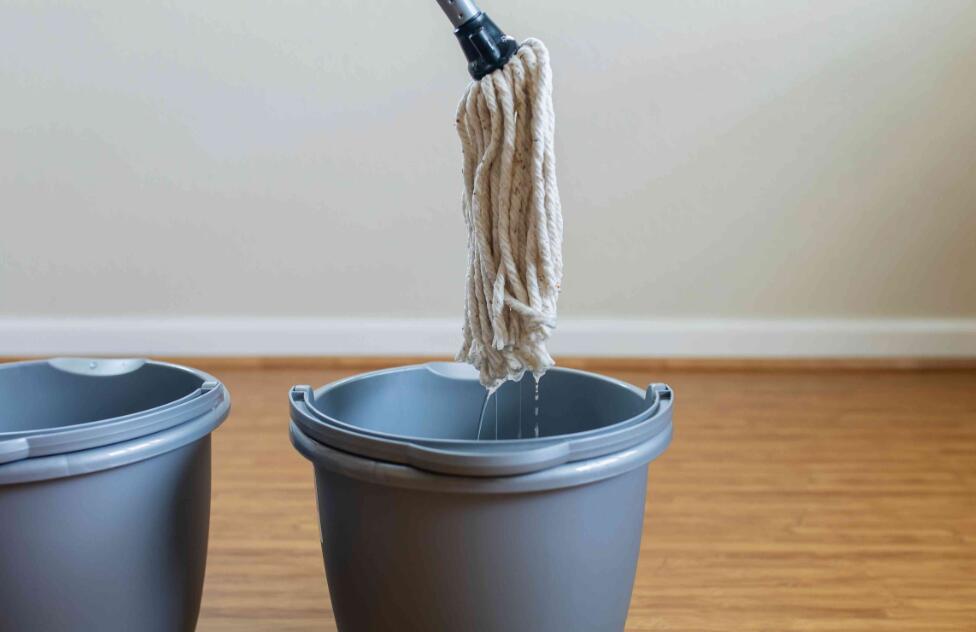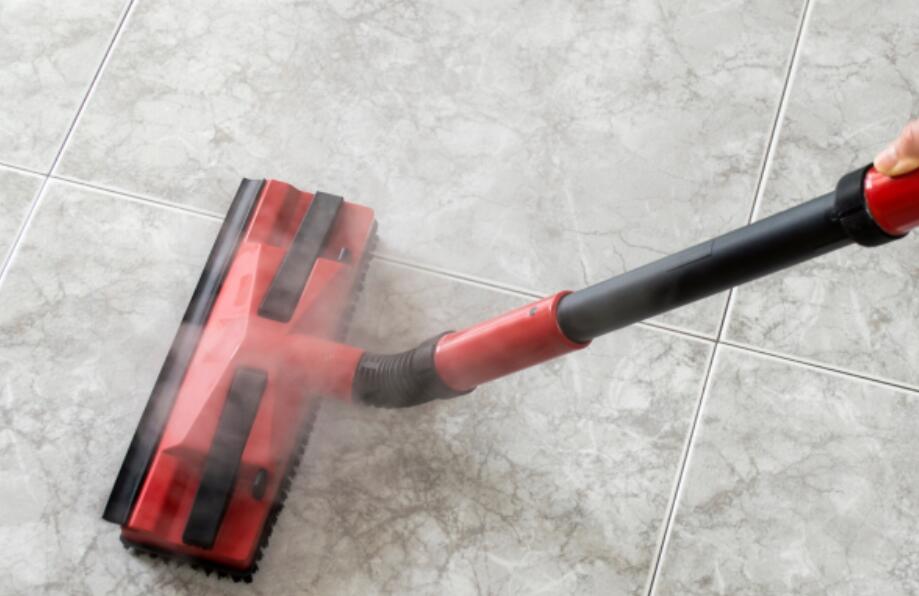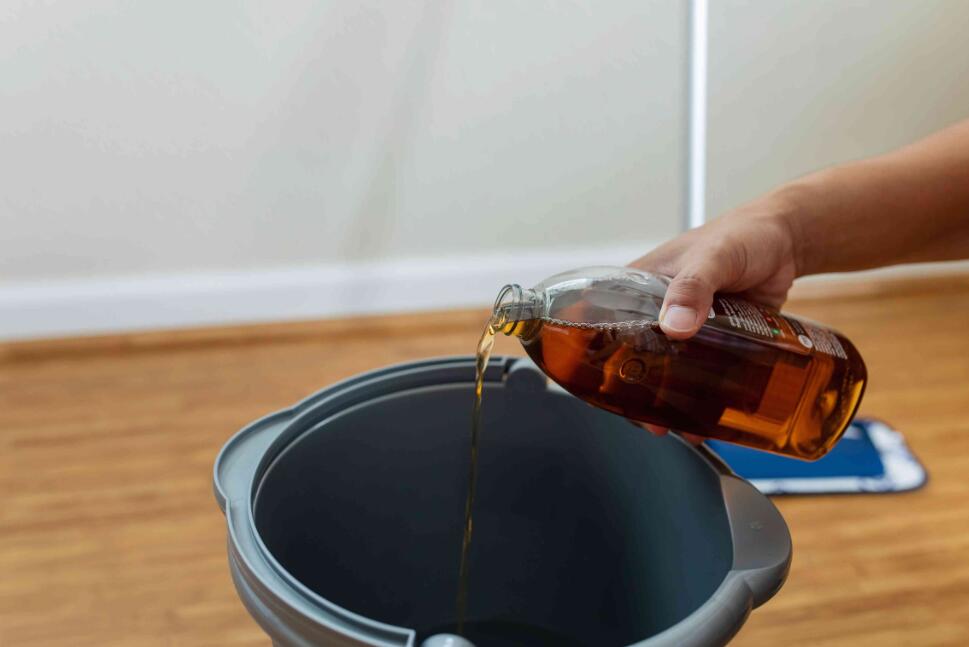It is better to clean your floors using cold water rather than hot. This is because it does not damage the flooring, and it retains floor shine. It also helps in eradicating germs and bacteria.
Hot water is not always necessary when mopping a floor, but it can help in certain cases. For example, if your floor is particularly dirty, using hot water with a strong cleaning solution can help remove the dirt and grime.
Keep reading to learn more about the best way to clean your floors using cold water. And you will learn the benefits of using this method, including the fact that it is safe and does not damage your flooring.
Cold Water, Safest for Floors, Work Best Floor Cleaners
Some scientific evidence suggests using cold water is a better way to clean floors.
For example, a study by the University of Arizona found that using cold water is more effective in removing dirt and grime from floors than hot water.
The reasons are that cold water does not damage the flooring and retains floor shine. It also helps in eradicating germs and bacteria.
Use cold or water or lukewarm on these floor types only
Using cold or lukewarm water is often recommended over hot water, as it is less likely to damage your floors. And you’d better use them on:
Hardwood floors
While hot water may help remove some dirt and grime, it can also damage the sealant or wax that protects your hardwood floors. Using cold water instead will not cause any damage and can help retain your floors’ shine. Moreover, cold water is less likely to warp or crack hardwood floors over time.
When cleaning hardwood floors, it is best to use a mixture of cold water and vinegar. This will help remove any dirt or grime without damaging the sealant or wax that protects your floors.
Laminates floors
If you’ve ever had the pleasure of walking on a freshly laminated floor, you know that there’s nothing quite like it. The smooth, glossy surface is simply irresistible. However, you may not know that this special property of laminates makes them delicate to hot water.
Laminate floors are particularly vulnerable to hot water, which can cause the edges of the flooring to peel or curl. That’s right, those beautiful floors are easily damaged by something as innocuous as a cup of coffee or a spill from the teapot. So, how can you keep your laminate floors looking their best?
The answer is simple: clean them with cold water. By using a damp cloth or mop, you can avoid damaging the delicate surface of your laminate floors. So next time you’re tempted to reach for the hot water, remember that cold is best for keeping your laminate floors in tip-top shape.
Vinyl floors
Vinyl floors are another type of flooring that can be damaged by hot water. It can cause the vinyl to become brittle and crack over time. Using cold water is a safer option and will help keep your vinyl floors looking good for longer.
The reason for this is that vinyl is made from polyvinyl chloride, or PVC, which is a type of plastic. When exposed to heat, PVC becomes soft and malleable. This can cause the vinyl flooring to warp and distort.
In addition, hot water can also cause the adhesive backing on vinyl tiles to loosen, making them more likely to come up. So next time you spill something on your vinyl floor, reach for the cold water instead of the hot – your floor will thank you for it!
Bamboo floors
Bamboo floors are beautiful and elegant but can be delicate to hot water. This is because bamboo is a grass, and the roots of the grass are very strong. When the roots of the grass are heated, they can break easily.
That’s why you should clean your bamboo floors with cold water. When you use hot water, you risk damaging the roots of the bamboo and causing it to break. So, if you want to keep your bamboo floors looking beautiful, make sure you clean them with cold water.
Furthermore, bamboo is a renewable resource, so cold water helps reduce the environmental impact of cleaning your floors.
Why do floor cleaners have better results in cold water?
Most modern floor cleaners recommend combining cold water with their products for optimal results. Using cold or water in a neutral temp combined with floor cleaners will not alter the effectiveness of the active ingredients in the products.
This might sound like a good thing, but it makes it harder for the water to penetrate dirt and grime. In contrast, cold water is denser, so the molecules are closer together and can break through surface tension more easily.
Hot Water, A Little Helpful, But Harmful.
When it comes to cleaning your floors, hot water can do more harm than good. The high temperatures can cause the dirt and grime to bake onto the surface of your floor, making it harder to remove. In addition, hot water can damage certain types of flooring, causing them to warp or discolor. But here is on floor type you can use hot water with.
You can only you hot water on tiles and marble floors.
Tiles and marble can withstand hot water without being damaged? It’s all thanks to the minerals that they are made of. Most tiles and marbles are made primarily of quartz, which has a high melting point. This means that it can withstand high temperatures without being damaged.
In addition, quartz is also very resistant to scratches and stains, making it an ideal material for use in wet areas. So next time you’re running a hot bath, you can rest assured that your tiles and marble won’t be damaged.
When is hot water a better choice?
Hot water is effective for mopping floors and clean the spot stains. When you use hot water, the molecules move faster and break apart the dirt and grime more easily.
This helps to loosen the stains so that you can mop them up quickly and easily. In addition, hot water also kills bacteria and germs, making it an ideal choice for mopping up after a spill or accident.
Whether you’re dealing with a tough stain or just want to give your floors a deep clean, hot water is always an effective choice.
Can you use boiling water to clean your floors?
You’d better not and why?
Boiling water is too hot and can damage your floors. The high temperatures can cause the tiles to crack or the vinyl to become brittle.
What Is the Best Temperature of Mop Water?
Some floor types can be sensitive to extreme temperatures, so it’s important to use the right water temperature when cleaning your floors.
If the water is too hot, it can damage the floor; if it’s too cold, the floor won’t be properly cleaned.
The best water temperature for cleaning your floors is under 120 degrees Fahrenheit (48.9 degrees Celsius). This range will clean your floors effectively without causing damage.
Tips on Using Cold Water for Mopping Floors
When cleaning your floors, using the right tools and solutions is important. Here are a few tips on using cold water and floor cleaner solutions to get the job done:
1. Use a mop or rag to apply the floor cleaner solution.
Be sure to use the correct amount of floor cleaner solution; too much will leave your floors sticky, while too little will make it difficult to remove dirt and grime.
Also, be sure to use a clean mop or rag; a dirty one will just spread around dirt and debris. And finally, take your time; rushing through the job will only result in missed spots and streaks.
2. Let the floor cleaner solution sit on the floor for a few minutes before wiping it up.
Always let the cleaner solution sit for a few minutes before wiping it up. That gives the chemicals time to do their work and loosen up all the dirt and grime.
Plus, it’s just more effective in general. So next time you’re cleaning the floor, don’t be in such a rush to wipe up the cleaner. Let it do its thing, and you’ll be amazed at the results.
3. Use a wet vacuum to clean up any remaining moisture.
If you’ve ever found yourself standing in a puddle of water, you know that it’s not a fun experience. That’s where a wet vacuum comes in handy.
Wet vacuums are specifically designed to pick up liquid, so they’re perfect for cleaning up any remaining moisture. And best of all, they make the whole process a lot less messy. So if you find yourself in a sticky situation, reach for a wet vacuum and let it do the work for you.
Conclusion
The answer is pretty clear, cold water is better to use when cleaning floors. We’ve shared some tips on using cold water and floor cleaner solutions to achieve the best results. And we provided a few useful tips on using a wet vacuum to clean up any remaining moisture.
Hopefully, this article has given you the information you need to properly clean your floors.



